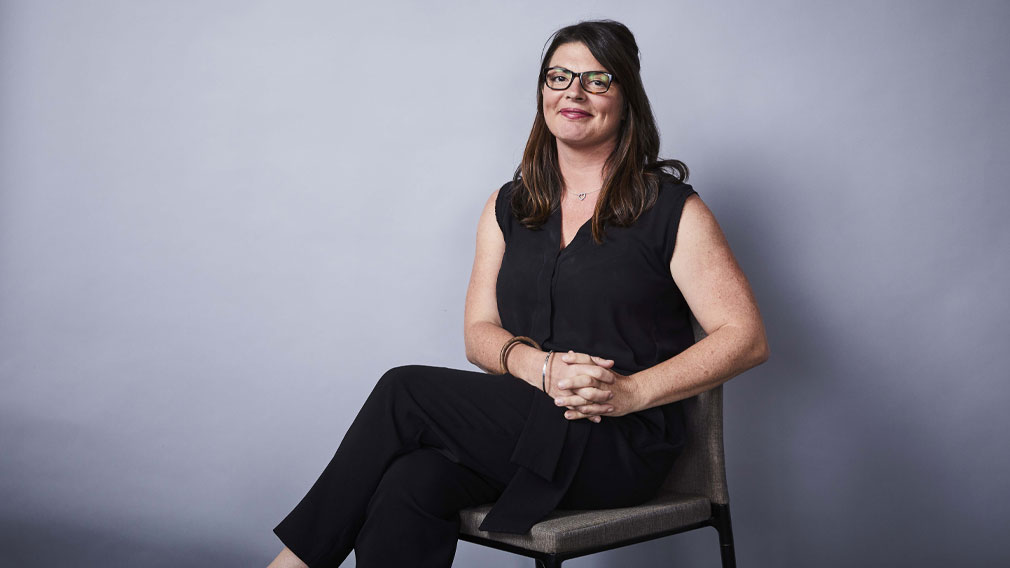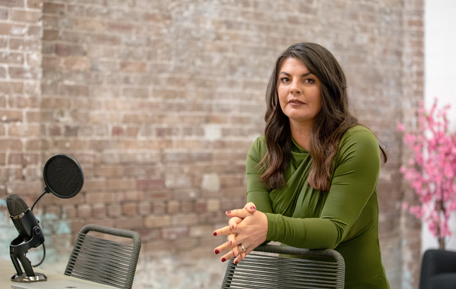Fight for miscarriage awareness comes from the heart

Sam Payne, CEO of the Pink Elephants Support Network. (Flashpoint Labs)
This article discusses the topic of miscarriage and pregnancy loss.
After her first miscarriage, Sam Payne dealt with her grief by focusing on the likelihood that she would get pregnant again someday.
It was only after her second miscarriage that she felt the lack of support from governments, organisations, and communities that she, like so many other families experiencing this loss, desperately needed.
“I started to feel angry and dismayed because I was told it didn’t matter, since it happened early,” says Payne, a 2022 Westpac Social Change Fellow, in an interview with Wire.
“On one hand, early pregnancy loss is so common. But on the other hand, I felt bereaved and isolated. The two didn’t go together.”
What started as a coffee catch-up with a friend, turned into a discussion about the unmet need for support for women experiencing miscarriage.
“Whether it’s the initial diagnosis, the medical support, or emotional support from the community – women deserved more."
Payne decided to take matters into her own hands, starting the Pink Elephants Support Network, a safe space for women to listen to each other and validate their stories of early pregnancy loss.
Pink Elephants is named after the concept where, should a mother elephant lose her baby, other elephants use their trunks to form a physical #circleofsupport.
“We poured our hearts and souls into mapping out the support women needed and what resources we could offer them.”
In the beginning, Payne says that Pink Elephants was cathartic.
“It was like translational grieving – and a way to have my babies’ lives seen.”
But after having two children – her ‘rainbow babies’ – Payne has been motivated by the idea of creating a better future for them.
“It’s nearly been 8 years now – I don’t want my kids to have to experience what I did in 20 or 30 years.”

In 2020, Sam Payne was awarded the Westpac Scholars Social Change Fellowship for her work in the sector. (Supplied)
A quarter of all pregnancies end in loss – affecting between 100,000 and 150,000 couples a year – with the majority occurring in the first 12 weeks, according to Pink Elephants.
“That means everyone will know someone who has experienced a miscarriage,” says Payne.
“So really, everyone has a responsibility to know how to respond to the grief and validate it. Otherwise, this leaves a large portion of the community feeling isolated.”
Sadly, 75 per cent of women feel unsupported through miscarriage, a study by Pink Elephants found.
“When I was going through the pain of the loss, I wasn’t able to process it immediately,” says Payne.
“Instead, I was so focused on managing other peoples’ reactions to my grief, or pretending I wasn’t hurting, or having difficult conversations to justify my feelings.”
Support for women experiencing pregnancy loss can come in many forms, Payne says.
“Workplaces need a clear policy on pregnancy loss and create safe spaces and a culture where you can talk through all of this.”
The Pink Elephants Support Network’s most successful campaign to date has been its Leave for Loss campaign, where the organisation lobbied for FairWork Australia to recognise pregnancy loss prior to 20 weeks.
Landmark legislation was put to the federal parliament in 2021, entitling women who experience miscarriage and their partners to two days of paid bereavement leave, as part of the government’s Sex Discrimination and Fair Work (Respect at Work) Amendment Bill.
But Payne says her work is about much more than legislative change.
“It’s when you know you’ve touched someone and get one bit of feedback help someone find a way to move forward again, that’s success.”
“I want to see a world where all pregnancy losses are met with empathy and understanding.”
In 2020, Payne was awarded the Westpac Scholars Social Change Fellowship for her work in the sector.
“I had just had another miscarriage when I got the scholarship. But it gave me what I needed to pick myself up in the middle of COVID and opened so many doors to help amplify the message.”
And for anyone experiencing pregnancy loss, Payne shares a message she wishes she had heard early on in her journey.
“There’s so much self-blame – but it’s not your fault. It’s easy to internalise it, but it’s nothing you did.”
For more on the topic, listen to the Pink Elephants Support Network's podcast: The Miscarriage Rebellion.


